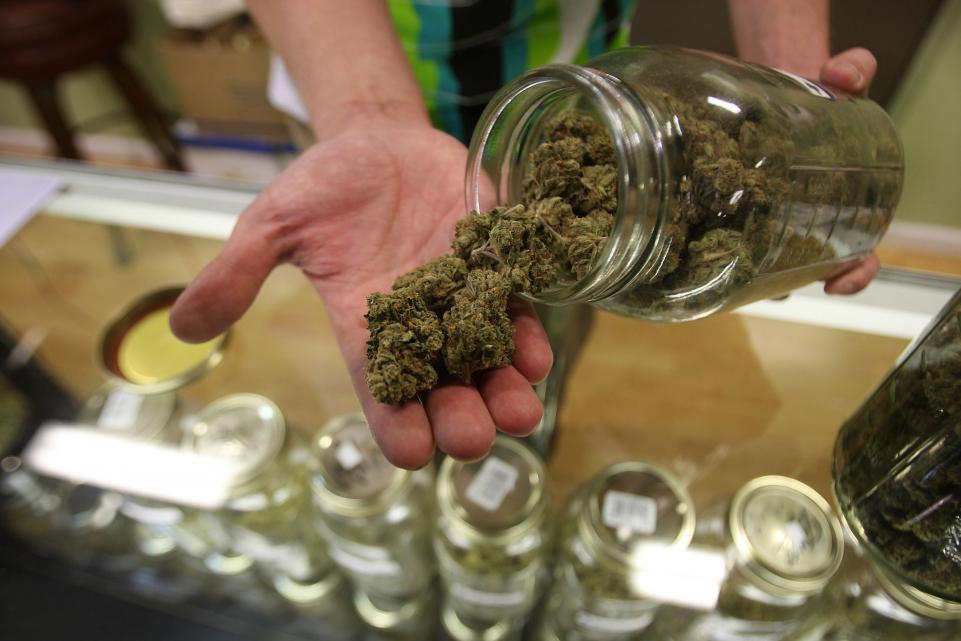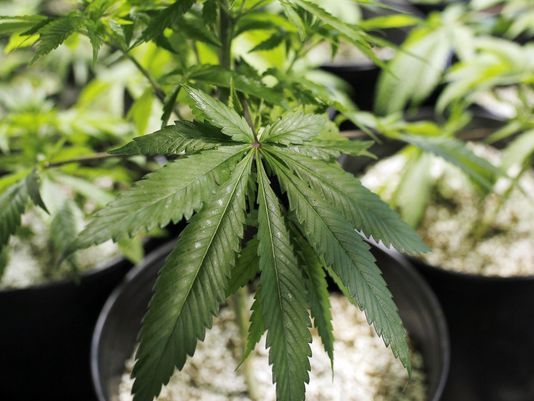Recreational marijuana is now closer than ever to becoming permitted by law in Michigan. A ballot petition being circulated by the Coalition to Regulate Marijuana Like Alcohol is “well past” 250,000 signatures, according to the group’s spokesman Josh Hovey. The state of Michigan requires 252,523 valid signatures for the initiative to make it onto the ballot in November 2018.
Hovey says the group’s goal is to collect 350,000 signatures, to give themselves a cushion for invalid signatures — signatures that cannot be traced to a registered voter or signatures from a voter who has already signed — and they aim to have everything submitted to the state by Nov. 22.
If they are able to reach their goal, and the state validates at least 252,523 signatures, the initiative will then go to the legislature for a vote. If the bill fails in the legislature, it will then go on the ballot in Nov. 2018 for residents of Michigan to vote.
Though he isn’t sure how it will fare in the legislature, state Rep. Yousef Rabhi, D-Ann Arbor, is optimistic about the proposal’s chances if it goes to the ballot in 2018.
“I support the bill,” Rabhi said. “In terms of whether or not it is viable, I think that you are seeing unprecedented support, frankly, for this bill statewide. I think that the petition drive is going really well. I think that people are ready for this.”
The initiative allows people aged 21 and over to purchase and possess up to 2.5 ounces of marijuana or 15 grams of marijuana concentrate and grow up to 12 marijuana plants in their homes for personal use. If passed, municipalities would be permitted to ban marijuana retailers and businesses within their jurisdictions, and public consumption and driving under the influence of marijuana would be forbidden.
If the initiative makes it onto the ballot in 2018, Hovey feels confident it will pass. National support for recreational marijuana is at 61 percent, according to a CBS poll from April of this year, and Hovey says the numbers in Michigan are about the same. A Michigan Daily poll of 71 randomly selected students found that 72 percent of respondents would support such an initiative, with 13 percent opposed and 15 percent unsure. 96 percent of respondents said they supported medicinal marijuana, with 4 percent unsure.
Hovey said the group’s primary motivations for pushing to legalize recreational marijuana are the ineffectiveness of the current marijuana laws and the resources wasted on enforcement of these laws.
“We firmly believe that, just like with alcohol, the prohibition of marijuana has been a massive failure,” he said. “One, it hasn’t stopped people from using. Two, it unnecessarily is a waste of law enforcement resources and it puts tens of thousands of people into the criminal justice system every year for using what is essentially a plant that has been found to be less harmful than tobacco, less harmful than alcohol.”
Fifty-nine percent of respondents to the Daily’s survey said they had used marijuana for recreational purposes at least once in the past. The same percentage –– though not necessarily the same respondents –– said the legalization of recreational marijuana would not increase their likelihood of using. Thirty-one percent said it would, and 10 percent said they were unsure.
LSA senior Enrique Zalamea, president of the University’s chapter of College Republicans, said he supported the legalization of recreational marijuana both for ideological and practical reasons.
“My main reason, coming from a conservative background, in supporting recreational use is mainly because I don’t believe that the government should tell individuals what they can and can’t do in certain regards, especially if this is a plant that has been used for medical purposes,” Zalamea said. “There’s not very much scientific background that it does cause heart attacks or cause all of the different medical complications that people make it out to.”
Additionally, he said, the state could save a substantial amount of money if it did not have to enforce the current prohibition on recreational marijuana.
“There’s such a huge cost that’s incurred when you try and police marijuana and enforce the illegal aspect of marijuana. We could use the kind of money that states spend on enforcing small amounts of marijuana to keep real criminals in prison, for infrastructure, for education.”
Though passage of the law would be a radical change for most of the state, marijuana possession has been decriminalized in Ann Arbor since 1972. Public Policy senior Rowan Conybeare, chair of the University’s chapter of College Democrats, said she thinks the disparity between Ann Arbor and the rest of the state, and the discriminatory enforcement of the law, is unfair.
“It’s a low-level drug. It’s decriminalized in Ann Arbor –– you get a $25 fine and that’s it,” Conybeare said. “And it’s crazy that in other places people are getting arrested and incarcerated. I think it’s also important to look at the racial disparities. We’re destabilizing these people’s lives for a low-level crime when other people are just getting off with it.”
Rabhi agreed, adding the illegality of marijuana pushes people to use it in less-than-safe conditions.
“People use marijuana now. The prohibition on pot is not working in the way that people are thinking it’s working,” Rabhi said. “What it’s doing is pushing people into the shadows who are going to be using marijuana anyway, which can lead to unsafe conditions for marijuana usage. By bringing it out of the shadows, we can make sure that people are using safe quantities, that what they are using is as pure as possible and as low of a health risk as possible.”
Though the ballot initiative appears to be on the brink of success, at least in terms of clearing the bar of required signatures, it isn’t without opposition. Keep Pot Out of Neighborhoods and Schools is a coalition that emerged to oppose the initiative. Gary Gordon, an attorney for the group, did not respond to requests for comment. At a May meeting of the Board of State Canvassers reported by the Detroit News, however —where the wording of the initiative was approved by the board — Gordon spoke in opposition to the bill’s provision allowing homegrown marijuana.
“They don’t have to be licensed and they are not taxed,” he said. “There’s not regulation at all on that.”
According to a press release from the group, they are “committed to making certain every citizen, especially our kids, are protected from the unregulated proliferation of pot being made available across Michigan.”
“If this flawed effort passes as proposed there will be no stopping pot from infiltrating all aspects of our society, including schools, neighborhoods and places of work,” the release read.
Chris DeWitt, spokesman for the group, declined to comment.
credit:420intel.com









